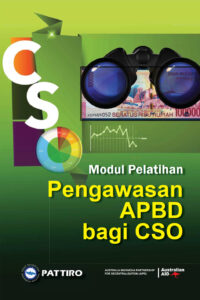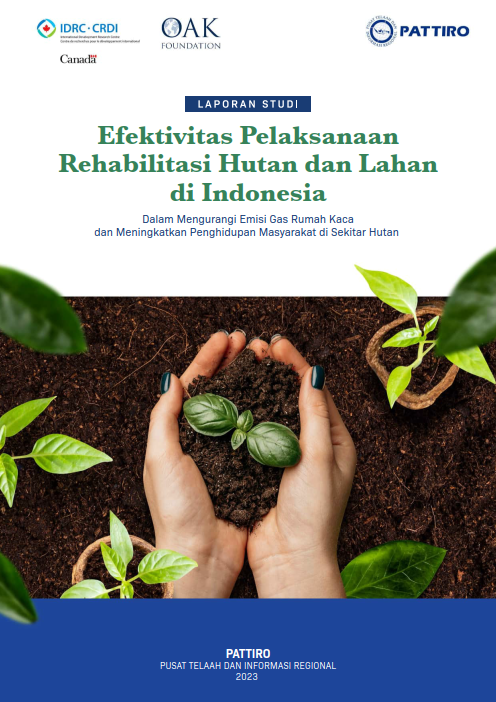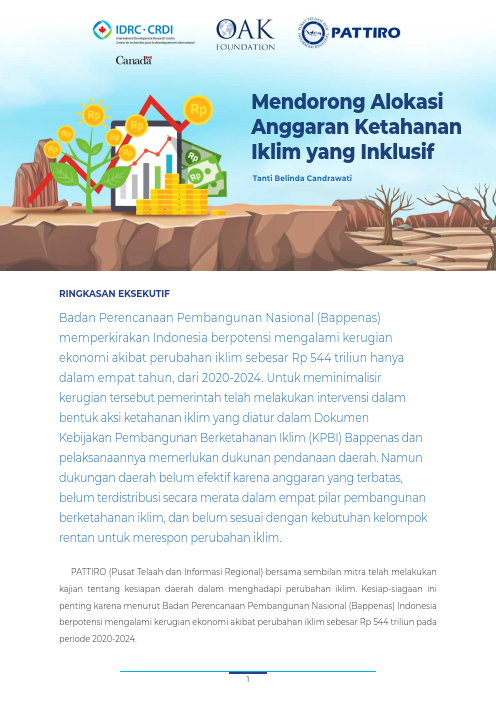 This module was written to support budgetary advocacy training activities that are undertaken by CSOs in five provinces and 20 districts that constitute the AIPD program area.
This module was written to support budgetary advocacy training activities that are undertaken by CSOs in five provinces and 20 districts that constitute the AIPD program area.
Module material encompasses various methods of budgetary supervision that are already practised by civil society, both in Indonesia and other nations, following their success advocating budgetary supervision. Among others, materials draw on the successes of civil society in Lebak District in undertaking budget tracking and PATTIRO’s experience facilitating and developing models of multi-stakeholder social auditing and monitoring.
The experience of civil society in undertaking budgetary supervision has provided an overview of a participative supervision system that has been developed by many parties, including civil society organisations that work in the field of budget advocacy. Besides that, this experience proves the importance of participation and community strengthening in budgetary supervision for encouraging government accountability. This module is also equipped with examples of budget usage and analyses of the APBD budget.
This book was written in order to provide the community with an understanding of a public service delivery complaint mechanism based on community participation. It draws on Law No. 25, 2009, which provides greater room for the community to participate in the management of public service delivery.
This room is no longer just what can be done at each step of planning, implementation and evaluation, but rather it is already based on details of performance so that the community can directly supervise the performance of the management of public service delivery.
As a part of complaint mechanisms that can at once inform service users and service providers of the ratings, the Community Rating report is one tool that is capable of compiling the ratings of public service users.
Within the context of local development and community welfare, the improvement or increasing of public service delivery, undertaken in the right manner, has strategic value and is beneficial for the increasing and cultivation of investment and development – whether undertaken by the community or the private sector.
[__wpdm_package id='13658']




